ABS systems are a crucial safety feature in modern vehicles, but how do they work and what are their benefits? In this article, we’ll delve into the world of ABS and explore its role in improving braking performance.
The Pain Points of Braking
Braking is one of the most important maneuvers a driver performs. In an emergency, being able to stop quickly and safely can make all the difference. However, traditional braking systems can be prone to problems, especially during sudden or slippery conditions.
ABS to the Rescue
ABS (Anti-lock Braking System) was developed to address these issues. ABS systems use a combination of sensors, valves, and a hydraulic modulator to prevent the wheels from locking up during braking. This allows the driver to maintain control of the vehicle and steer out of danger, even under heavy braking.

Understanding ABS: How It Works
ABS systems operate by constantly monitoring the speed of each wheel. When a wheel starts to lock up, the ABS system releases the brake pressure on that wheel momentarily. This prevents the tire from skidding and allows it to continue rotating, maintaining traction.
The ABS system then rapidly reapplies the brake pressure, allowing the tire to grip the road again. This process repeats itself multiple times per second, ensuring that the vehicle slows down without losing control.
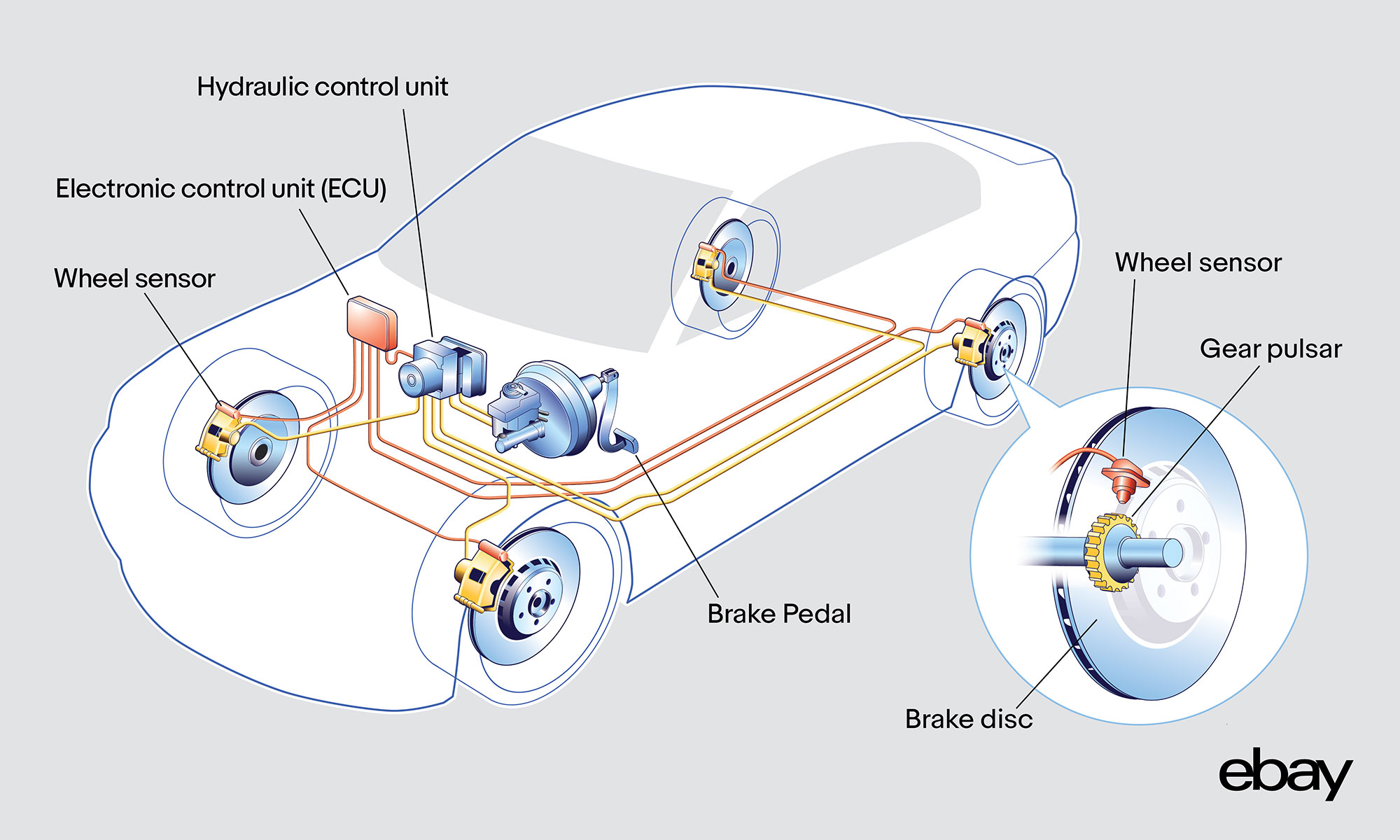
ABS: A Historical Perspective
The first ABS systems were developed in the 1960s by Dunlop and Lucas Automotive in the UK. These early systems were complex and expensive, but they proved to be highly effective in improving braking performance.
Over the years, ABS systems have become more affordable and widely available. Today, they are a standard feature on most new vehicles.
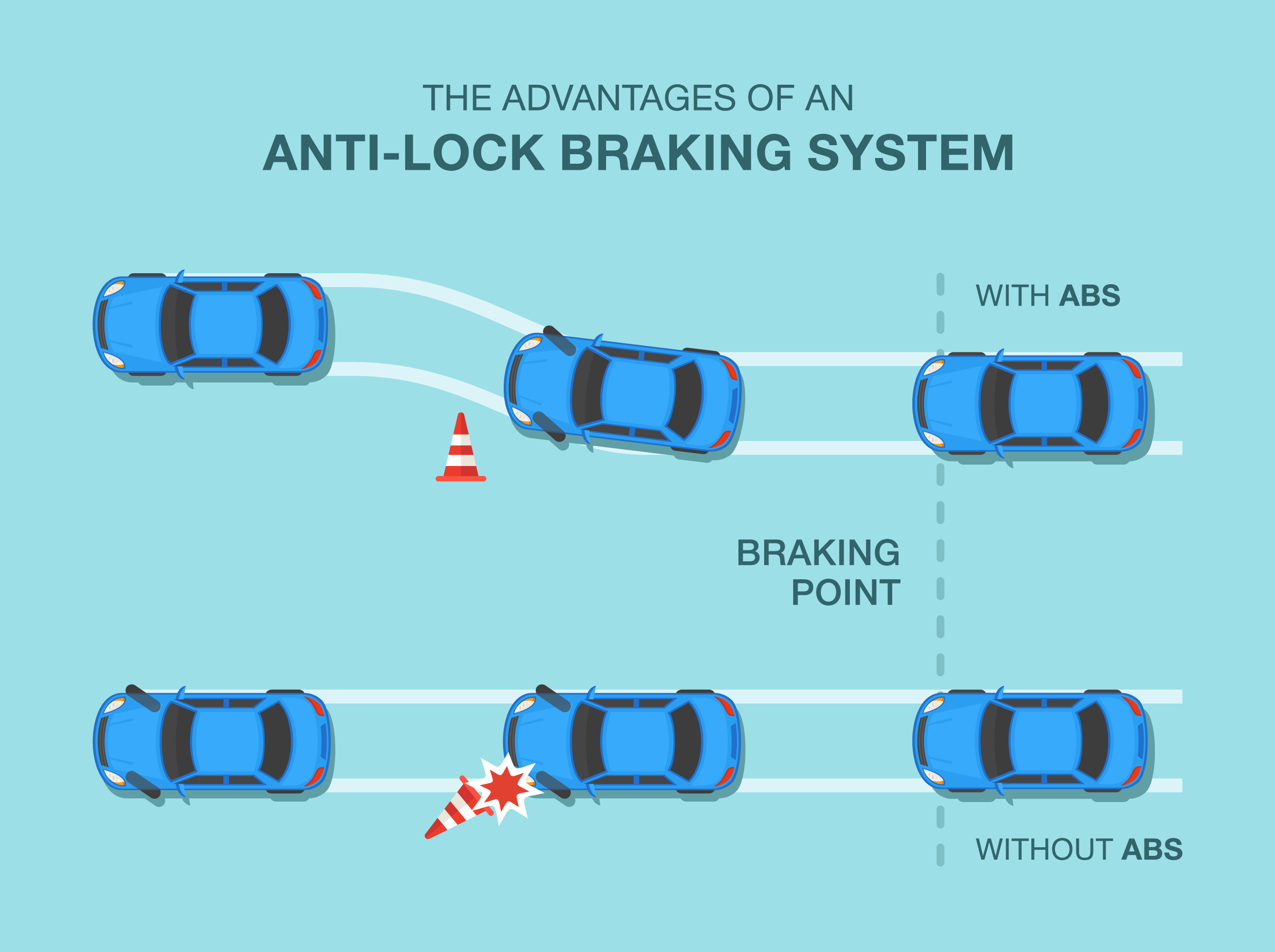
ABS: The Hidden Secrets
ABS systems are not just about preventing wheel lock-up. They also provide a number of other benefits, including:
- Improved traction control
- Reduced stopping distances
- Increased stability during braking
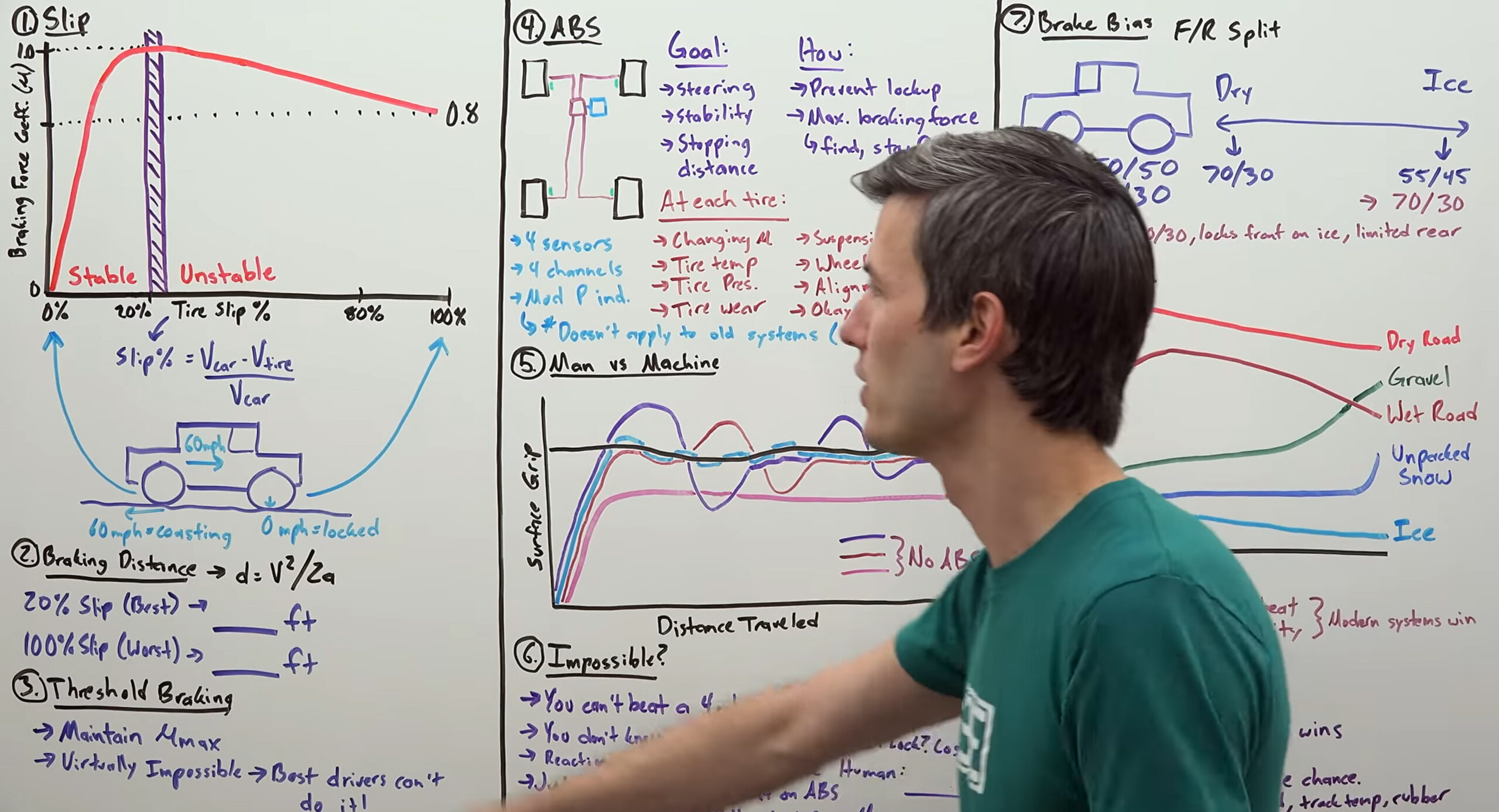
The Importance of ABS
ABS systems are a vital safety feature that can significantly improve braking performance. They help drivers maintain control of their vehicles in emergency situations, reducing the risk of accidents and injuries.
If you’re not sure if your vehicle has ABS, check your owner’s manual or look for the ABS warning light on your dashboard.
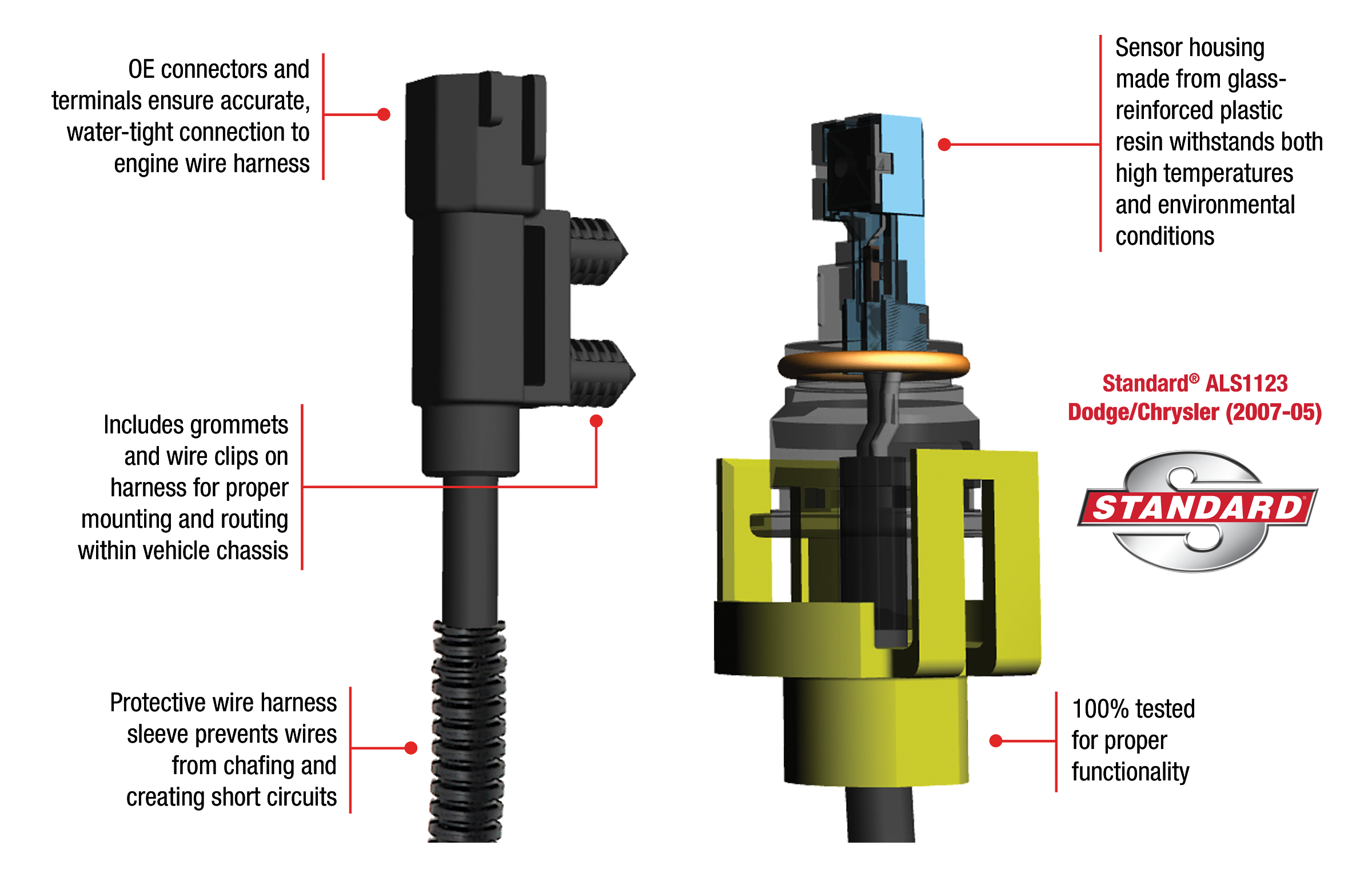
ABS in Detail: A Technical Explanation
ABS systems consist of several components that work together seamlessly:
- Wheel speed sensors: These sensors monitor the speed of each wheel.
- Hydraulic modulator: This component rapidly opens and closes valves to control brake pressure to each wheel.
- Electronic control unit (ECU): The ECU analyzes data from the wheel speed sensors and controls the hydraulic modulator.
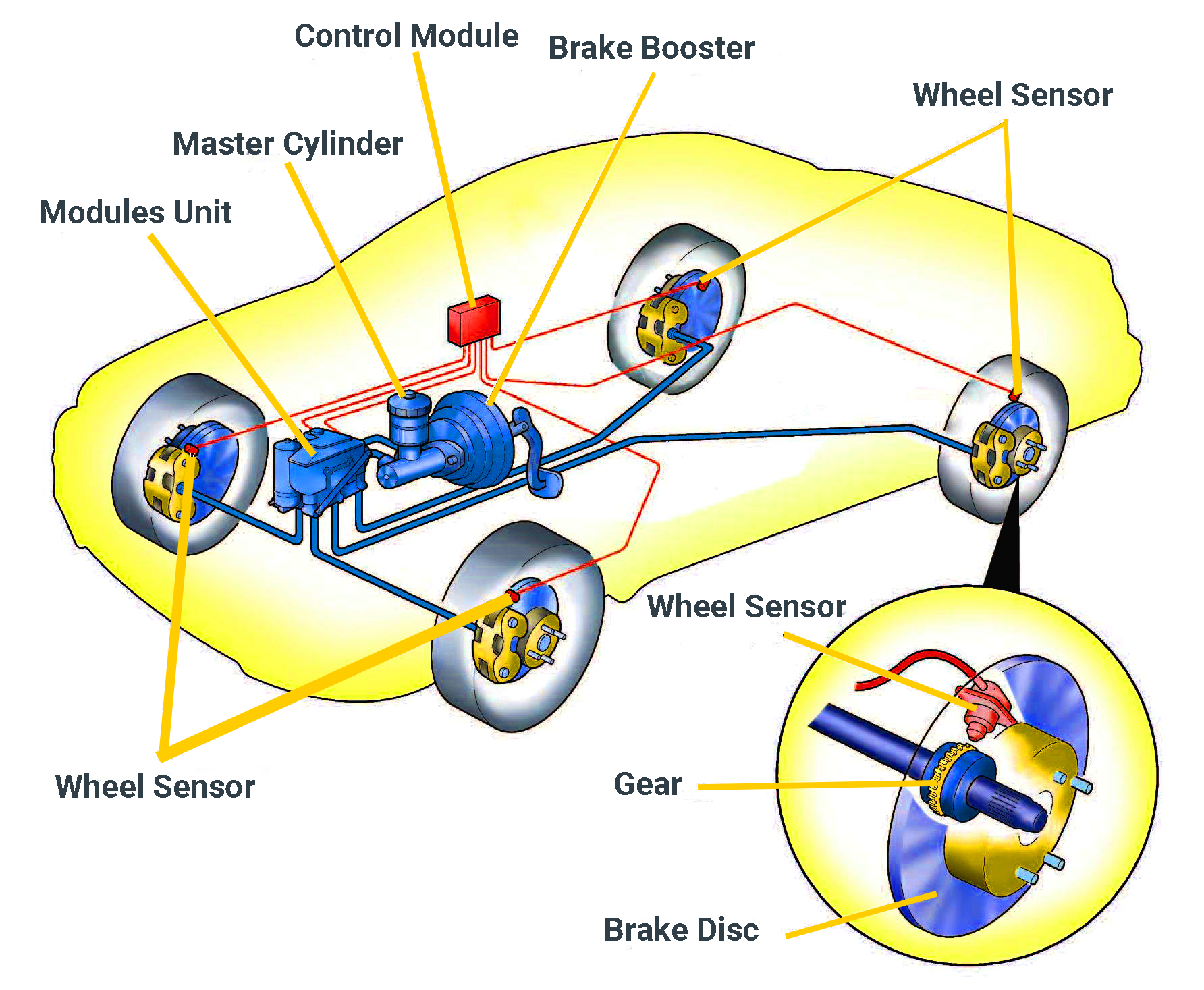
Tips for Optimal ABS Performance
To get the most out of your ABS system, follow these tips:
- Practice emergency braking in a safe environment.
- Keep your ABS sensors clean and free of debris.
- Have your ABS system inspected regularly by a qualified mechanic.
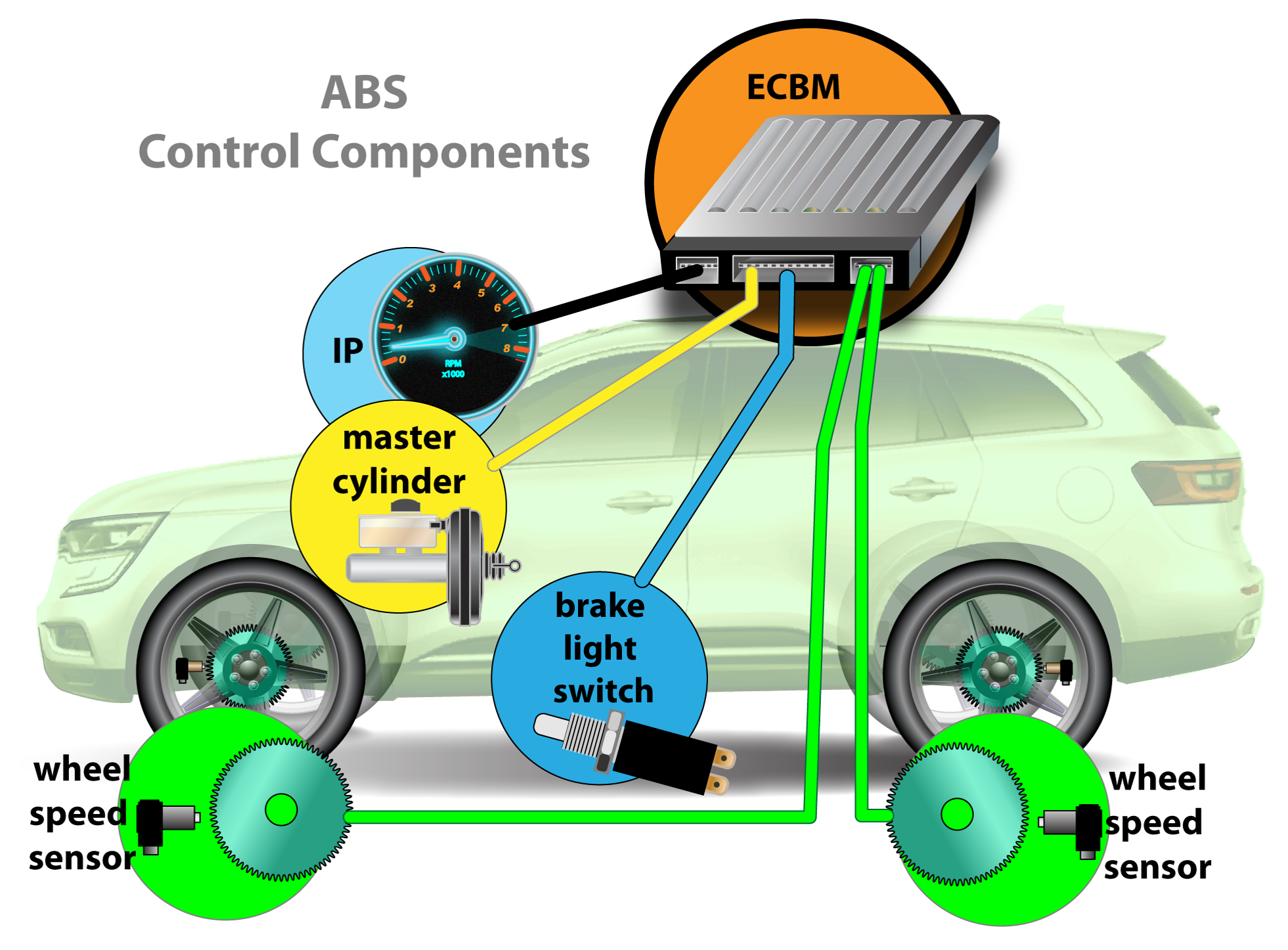
ABS and Skidding
ABS does not eliminate the risk of skidding. However, it can significantly reduce the likelihood of a skid or help you regain control if a skid occurs.

Fun Facts about ABS
Here are some interesting facts about ABS:
- ABS systems can improve braking distances by up to 30%.
- ABS systems are also effective on rough or uneven surfaces.
- The ABS warning light will usually illuminate when there is a problem with the system.
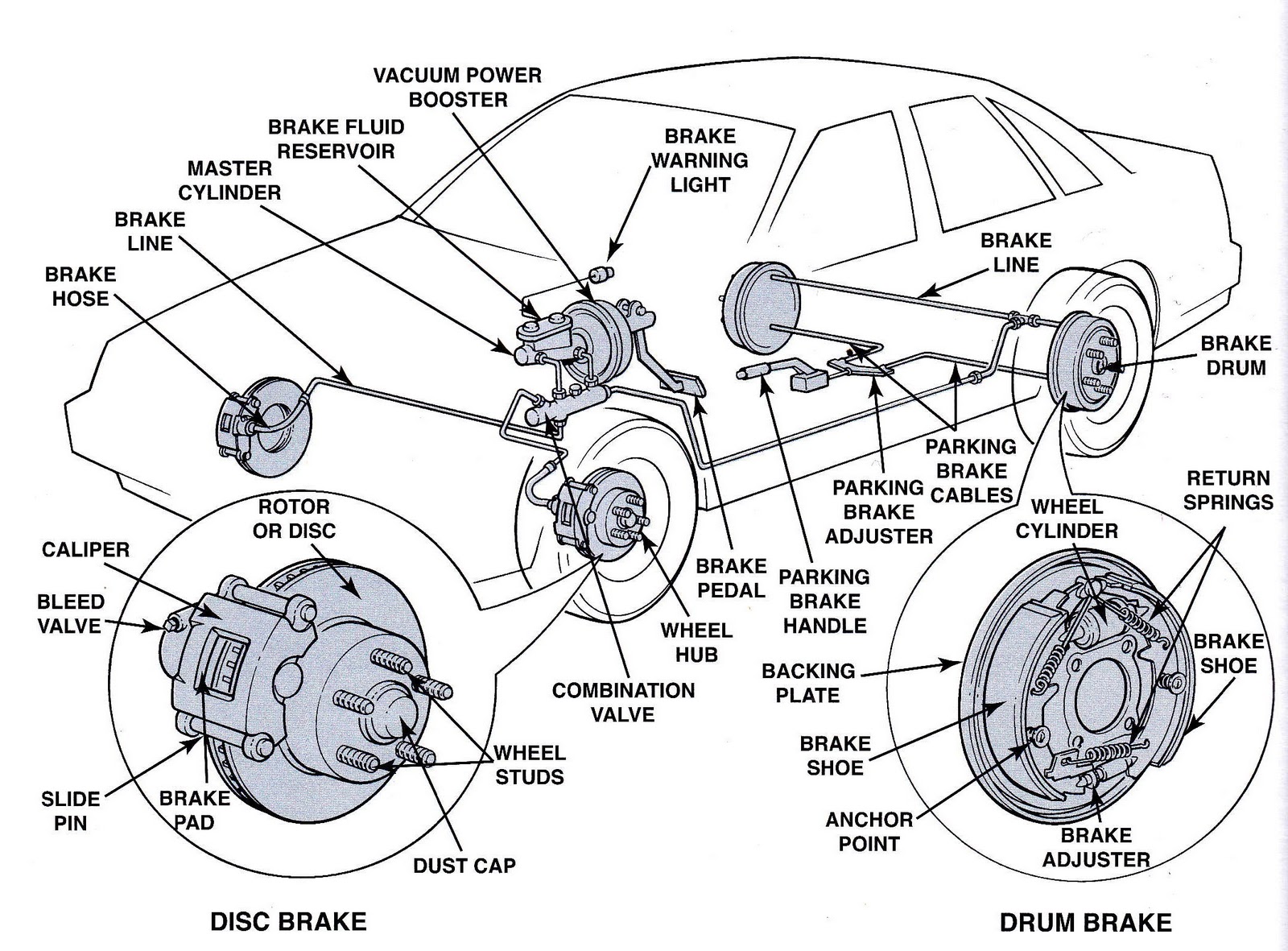
Troubleshooting ABS Issues
If you experience any problems with your ABS system, the following steps can help:
- Check the ABS warning light on your dashboard.
- Have your ABS system inspected by a qualified mechanic.
- Replace any faulty parts as necessary.
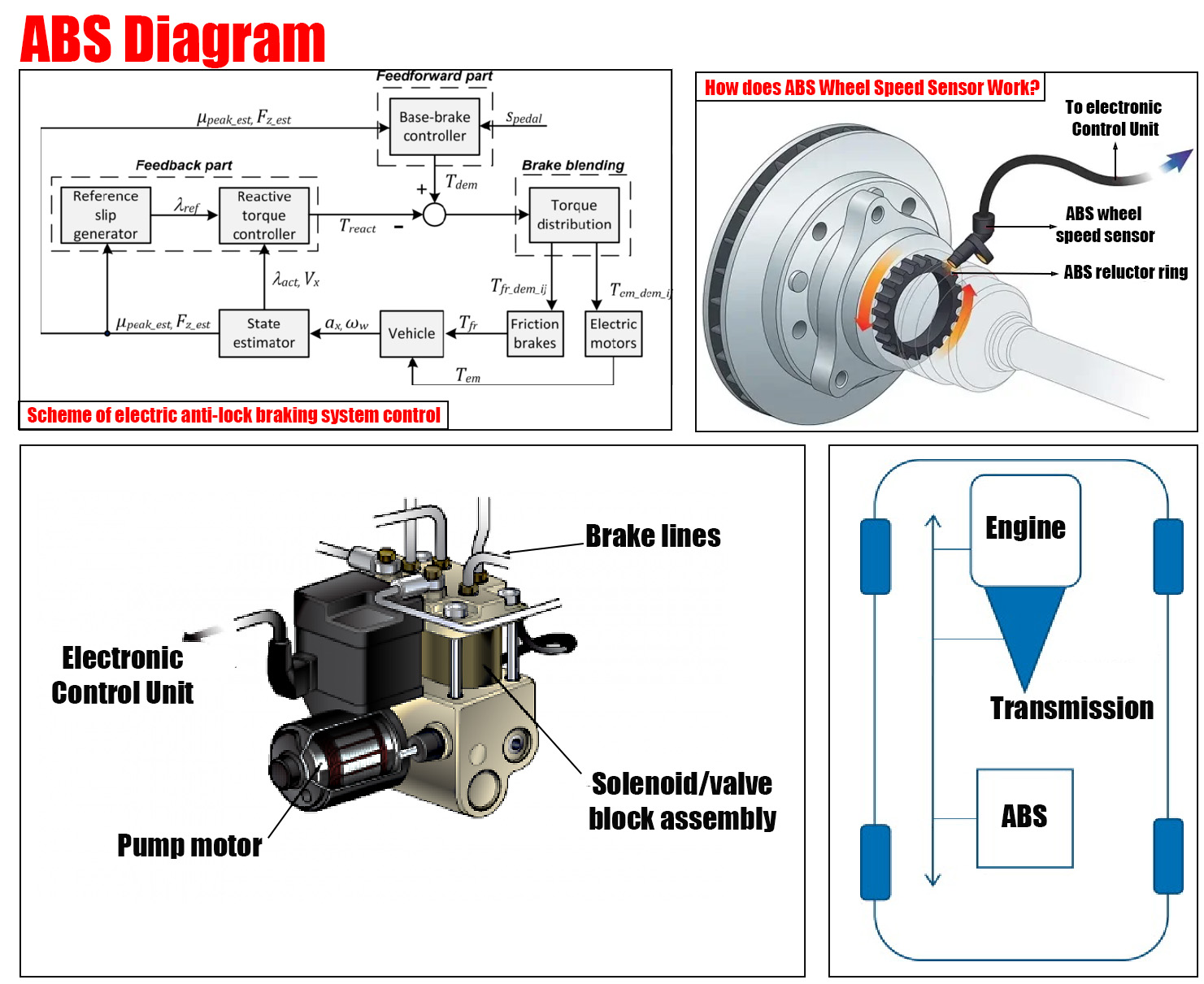
What if I Don’t Have ABS?
If your vehicle does not have ABS, it’s important to practice emergency braking techniques to avoid wheel lock-up. Here are some tips:
- Apply brake pressure gradually and release it if you feel the wheels locking up.
- Use a pumping motion on the brake pedal.
- Steer out of danger if possible.
A List of ABS Advantages
To sum up the benefits of ABS, here’s a quick list:
- Prevents wheel lock-up
- Improves traction control
- Reduces stopping distances
- Increases stability during braking
Question and Answer
- Q: What is ABS? A: Anti-lock Braking System, which prevents wheel lock-up during braking.
- Q: How does ABS work? A: It uses sensors, valves, and a hydraulic modulator to release and reapply brake pressure to prevent wheel lock-up.
- Q: Why is ABS important? A: It improves braking performance, reduces stopping distances, and increases stability.
- Q: What should I do if I have ABS problems? A: Check the ABS warning light, have the system inspected by a mechanic, and replace any faulty parts.
Conclusion of Understanding The Role Of The ABS System In Braking Performance
ABS systems are a crucial safety feature that has revolutionized braking performance. By preventing wheel lock-up, ABS allows drivers to maintain control of their vehicles and reduce stopping distances. Understanding the role of ABS and how to use it effectively can help you stay safe on the road.
